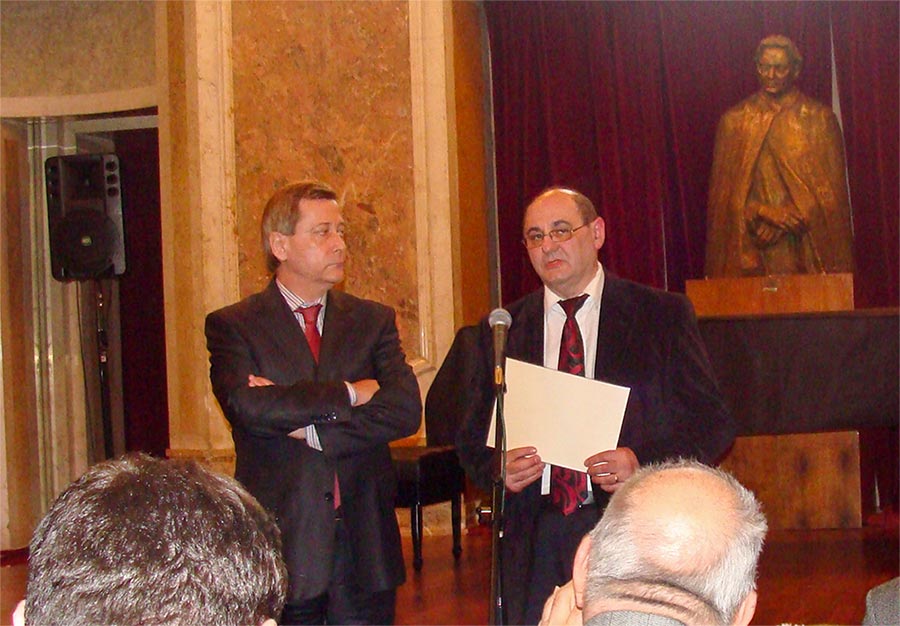The Musicology specialization was introduced in 1975 and it aims to train musical phenomenon researchers, in all its forms (composition, performance, perception, education), competent music critics, able to express in all media channels, teaching staff instructed for high school and academic education in the field.
The study area includes historical culture and aesthetics, writing and musical languages areas and the formative, specialty direction – represented by Musicology, Ethnomusicology, Music critics, Television and radio music journalism – aims at assimilating documentation, drafting and editing techniques, specific to each journalistic and musicological practice level and objective.
Musicology graduates benefit from later various and attractive employment opportunities in different fields: education (music education, music history,
SUBJECTS
Compulsory Fundamental Subjects
Theory, Solfeggio, Dictate
Music history
Musical forms and analyses
Music aesthetics
Music management
Compulsory Field Subjects
Harmony
Counterpoint
Folklore
The theory of instruments and orchestration
Choral ensemble
Musicological practice
Score reading
Radio-TV journalism
Compulsory Speciality Subjects
Musicology
Ethnomusicology
Music criticism
Music stylistics
Compulsory Complementary Subjects
Foreign language (English)
Complementary piano
Physical education
Optional Subjects
Package A
One subject out of three
Byzantine music
Jazz history
Ethics and academic integrity
Package B
One subject out of four
Classical vocal performance
Pop vocal performance
Traditional music vocal performance
Instrument (of one’s free choice)
Non-Compulsory Subjects
Traditional music ensemble
Traditional music recordings and transcriptions
Vocal performance accompaniment
